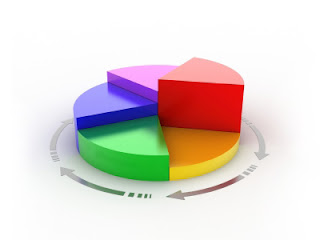Here are some SEO tips from somebody that has been working on it for years. Generating back-links to your website is the best way that I know of to boost the number of visitors that your websites get on every day basis. But, which links are most efficient?
Webmasters disagree about that. Personally, I feel that all links are efficient to a certain level. If you only generate links from one social network or website, then you have essentially bet all of your money on one horse.
To continue with the gambling scenario for just a moment, if you go to a race track and you spread your money around, betting on several different horses in the same race, your odds of winning some money are better. Of course, at the track, you will lose money on the horses that don't win.
Unless you pay for back links, there is no way that you can lose. Posting at some of the directories is a waste of time, in my opinion, because they don't allow relevant links within the text or they don't have an author's box at the end of each article.
Of course, time is money, so without further delay, here are a few more link building SEO tips. These are all free options.
- Find related websites and offer to trade space. You allow the website owner to put a link on your site. He allows you to put a link on his.
- Create a daily blog with links to your website. Provide helpful information related to the products that you sell or promote on your sit.
- Write informational articles and post them at EzineArticles, Amazine or Go Articles, three of the top article directories online. Posting is free and each of the ezines allows back-links in the body and in the article box.
The next link building SEO tips have to do with social networks. You should have enough confidence in your products or the ones that you are promoting to encourage your friends and family to buy them.
If you do not have a Facebook and a MySpace page, then you are a little behind the times. Twitter is the latest thing, but for user friendliness and beginners, I would recommend Facebook, first.
The more links that you have leading to your website, the more traffic you will get. You cannot have too many links. If you also have outgoing links, then your site ranks higher in the search engines.
So, those are my SEO link building tips for the day. Wish they help you create more traffic to your site.
Webmasters disagree about that. Personally, I feel that all links are efficient to a certain level. If you only generate links from one social network or website, then you have essentially bet all of your money on one horse.
To continue with the gambling scenario for just a moment, if you go to a race track and you spread your money around, betting on several different horses in the same race, your odds of winning some money are better. Of course, at the track, you will lose money on the horses that don't win.
Unless you pay for back links, there is no way that you can lose. Posting at some of the directories is a waste of time, in my opinion, because they don't allow relevant links within the text or they don't have an author's box at the end of each article.
Of course, time is money, so without further delay, here are a few more link building SEO tips. These are all free options.
- Find related websites and offer to trade space. You allow the website owner to put a link on your site. He allows you to put a link on his.
- Create a daily blog with links to your website. Provide helpful information related to the products that you sell or promote on your sit.
- Write informational articles and post them at EzineArticles, Amazine or Go Articles, three of the top article directories online. Posting is free and each of the ezines allows back-links in the body and in the article box.
The next link building SEO tips have to do with social networks. You should have enough confidence in your products or the ones that you are promoting to encourage your friends and family to buy them.
If you do not have a Facebook and a MySpace page, then you are a little behind the times. Twitter is the latest thing, but for user friendliness and beginners, I would recommend Facebook, first.
The more links that you have leading to your website, the more traffic you will get. You cannot have too many links. If you also have outgoing links, then your site ranks higher in the search engines.
So, those are my SEO link building tips for the day. Wish they help you create more traffic to your site.






